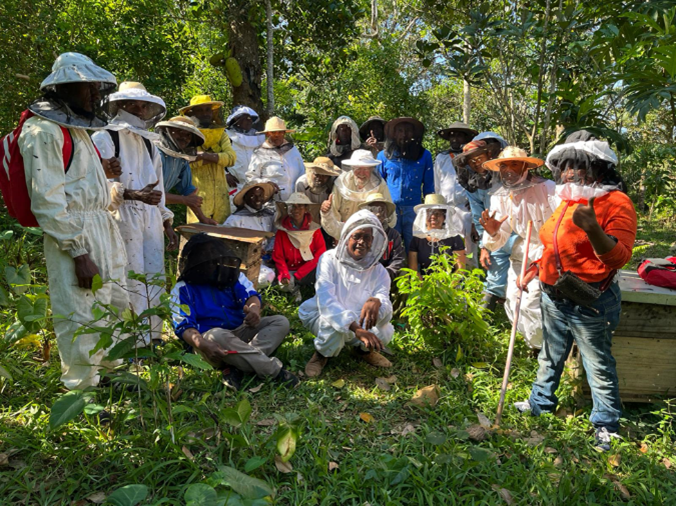Farmer-to-Farmer Program: Southern Africa
Azerbaijan, Madagascar, Malawi, Zambia, Zimbabwe
Overview
The two-year USAID-funded John Ogonowski and Doug Bereuter Farmer-to-Farmer (F2F) Program (2023-2025) connected expert volunteers working in the U.S. agriculture sector with host-country farmers, farm groups, agribusinesses, and other relevant institutions to strengthen agricultural value chains and promote lasting improvements in food security and agricultural processing, production, and marketing. In 2024, USAID expanded the F2F Program to include Azerbaijan to foster micro, small, and medium enterprise (MSME) development, with a focus on the grain, vegetable, and berry sectors.
Impact
- 38 American volunteers provided local organizations with technical training
- 1,709 agricultural stakeholders supported with technical assistance
- 48 agriculture-related organizations supported with technical assistance
- $11,696 leveraged in financial contributions from local partner organizations

The primary aim of the F2F Program was to generate sustainable, broad-based economic growth in the agricultural sector through voluntary technical assistance. A secondary goal was to increase the U.S. public’s understanding of international development issues and programs and international understanding of the U.S. and U.S. development programs.
Approach
The Southern Africa F2F Program, implemented by CNFA, built on partnerships established during the previous iteration of the program, which ran from 2018-2023. With a focus on rural enterprise development, the Program employed a market systems approach to address the barriers preventing smallholder farmers from accessing local market systems and opportunities. Technical assistance in production strengthening, enterprise development, and market facilitation helped farmers integrate into their local economies and identify opportunities for growth, improving incomes and contributing to regional economic development.
To diffuse innovative technologies and practices, the Program also partnered with Feed the Future Innovation Labs, U.S. universities, researchers, and leaders in the U.S. agribusiness sector. Additionally, the Program continued its Processor-to-Processor initiative, a collaboration with the American Oil Chemists Society (AOCS) and Feed the Future Soybean Innovation Lab, which paired AOCS members with agroprocessors in Southern Africa. Assignments focused on the following examples, among others:
Production Strengthening:
- Technology transfer
- Integrated Pest Management
- Integrated Soil Fertility Management
- Improved input and seed systems
- Best practices in crop and livestock production
Market Facilitation:
- Market analysis
- Pricing
- Contract negotiations
- Traceability, certification, and food safety
- Outgrower scheme support
Enterprise Development:
- Business development and management
- Strategic planning
- Organizational development
- Financial management
- Financial access




